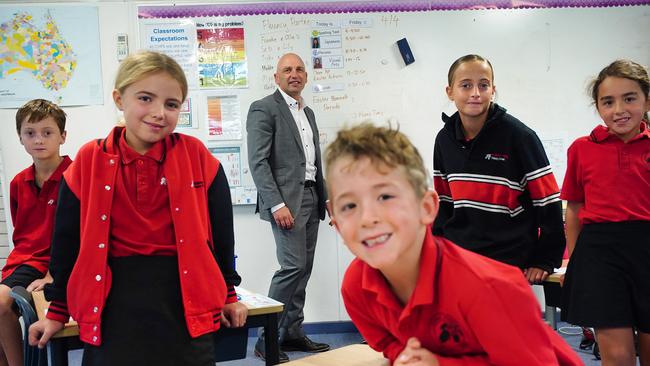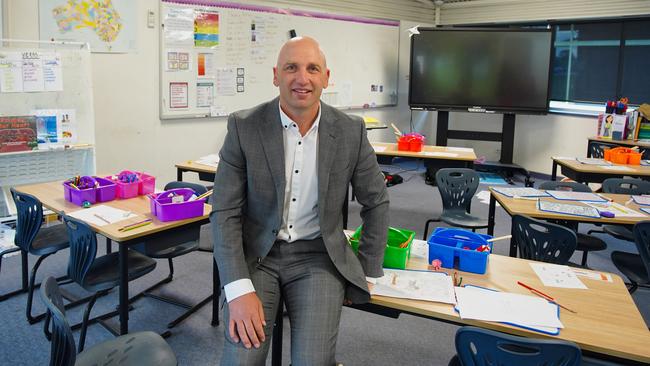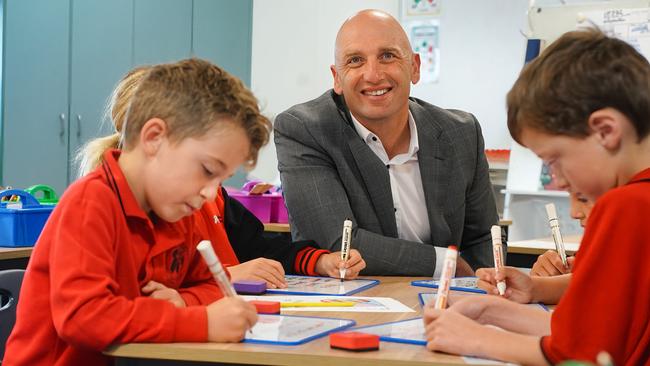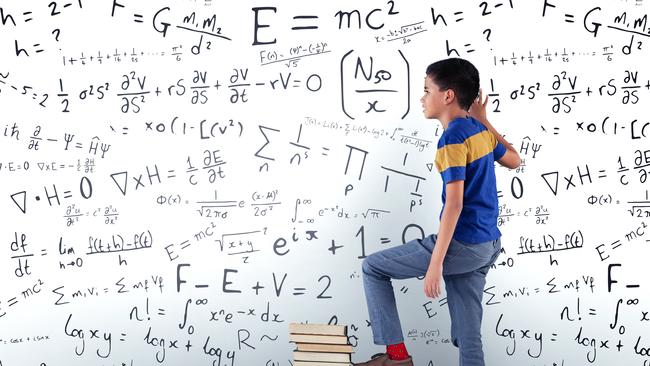Struggling primary school teachers need extra maths training: Grattan Institute
Thousands of primary school teachers are struggling to teach mathematics – resulting in some teenagers still using their fingers to count.

One in 12 trainee teachers dropped out of maths in high school, in a troubling trend that is crippling children’s numeracy skills.
Thousands of primary school teachers are struggling to teach mathematics – resulting in teenagers who use their fingers to count, Grattan Institute research reveals.
“Most primary teachers are expected to teach maths, but not all have the maths knowledge, confidence and training to do it well,’’ the report’s lead author, Jordana Hunter, said on Sunday.
“This isn’t fair for students, and it’s not fair for teachers either.
“Taught poorly, students are robbed of a core life skill – innumerate adults have worse job prospects and are more likely to struggle with routine tasks such as managing budgets and understanding health guidance.’’

The Grattan Institute calls for remedial retraining of primary school maths teachers, through the establishment of 50 “maths hubs’’ to provide intensive support to 30 primary schools at one time.
Each hub should employ a “maths master teacher’’ paid up to $250,000 a year – roughly double a standard teacher salary – and deploy specialist coaches to schools.
The Grattan Institute says governments have been too slow to stamp out “faddish but unproven maths teaching methods’’.
“Games and maths-lite activities are too often the driving focus of a lesson, without explicit teaching of new concepts and rules,’’ the report states. “Students (need to be) taught new concepts in small chunks, with clear explanations, step-by-step models, and many opportunities to practise.’’
The report praises NSW and Victoria for creating new lesson plans that focus on the explicit teaching of mathematics.
Melbourne principal Steven Capp has embraced back-to-basic techniques for teaching maths at Chelsea Heights Primary School, where students scored above or well above the national average in numeracy in last year’s National Assessment Program, Literacy and Numeracy (NAPLAN) tests.
“They know their times tables off by heart, and are able to quickly and easily add up and subtract,’’ Mr Capp said. “Students who have mastered the foundations of maths can move more quickly through the curriculum.
“If you’re trying to work out the area of a rectangle, it’s going to be infinitely harder if you don’t know your times tables.’’

Mr Capp said his university degree had focused on “kids discovering things, rather than teachers explaining concepts to students and giving them lots of practice’’.
He said he was wrongly trained at university to teach maths through “games and problem-solving activities, in the hope students might find some pattern’’.
Now he embraces the old-school method of rote learning and step-by-step instruction of mathematical concepts. “Explicit teaching is more efficient – and all the students tend to like maths because they feel confident that they can do it,’’ Mr Capp said. “My biggest delight is when kids say maths is their favourite subject.’’

One in three Australian students failed to meet baseline standards for numeracy in last year’s NAPLAN test – including two-thirds of children from disadvantaged families and one in five kids with university-educated parents.
“That’s about 1.3 million students across the country at risk of leaving school without the skills they need to thrive and contribute to society,’’ the report states.
A quarter of teens starting high school in year 7 have maths skills of an 11-year-old student in year 5.
“These students might struggle to round numbers, apply the order of operations, and calculate perimeter and area,’’ the report states.
“They may still be counting on their fingers, while students who are proficient sprint ahead with new skills like algebra.’’
In fresh evidence that universities are lowering entry standards to teaching degrees, the Grattan Institute found that 8 per cent of trainee teachers had not studied any mathematics in year 12, based on data from 22,000 admissions to university teaching degrees in NSW and Queensland between 2014 and 2023.
Of those who did study maths in senior high school, most chose the easiest maths subject, and one-third scraped in with a pass mark.
In NSW alone, 400 trainee teachers had scored in the bottom two bands of the Mathematics Standard 2 subject in year 12, demonstrating “limited knowledge and skills’’.
By analysing the high school maths results of professionals now in the workforce, the Grattan Institute found that 13 per cent of primary school teachers and 9 per cent of high school teachers had failed to pass a global maths test, the Program for International Student Assessment, when in year 10.
In contrast, 2 per cent of doctors, 6 per cent of lawyers and pharmacists, and 7 per cent of accountants – along with 18 per cent of nurses – had failed the high school maths test.

The Grattan Institute also surveyed 1745 primary school principals and teachers, finding that one in four don’t feel confident teaching year 6 maths.
Some 94 per cent of principals said some teachers would hesitate to teach year 5 or year 6 classes at their school because of the maths requirements. “Only 18 per cent of teachers felt that most or all of their colleagues could confidently teach the year 6 maths curriculum,’’ the report states.
The nation’s education ministers have given universities until the end of this year to rewrite their teaching degrees to include mandatory units on mathematics, phonics-based reading, explicit instruction methods and classroom management.
Teachers’ frustration with the quality of their university degrees is reflected in a new survey of 400 Australian and New Zealand teachers, by Education Perfect.
“Teachers feel unable to implement practices aligned with the latest educational standards, with only 13 per cent strongly agreeing their current practices align with pedagogical best practices,’’ Education Perfect found. “Almost a third noted insufficient training to effectively deliver personalised and adaptive learning.’’






To join the conversation, please log in. Don't have an account? Register
Join the conversation, you are commenting as Logout